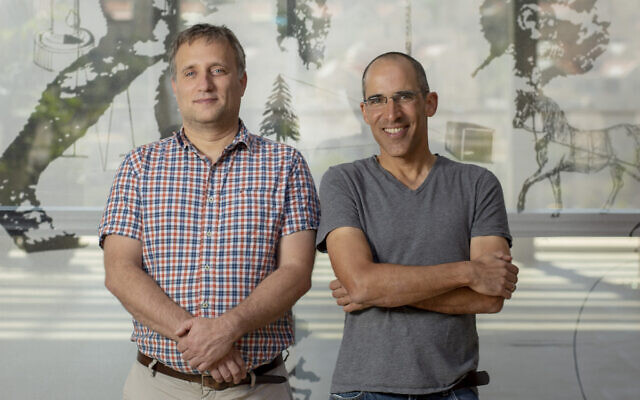Can You Dig It? Unearthing Our Past to Help Shape Our Future
For more information, please contact AFHU National Director of Development at southeast@afhu.org or (561) 948.3342.
The study of archaeology is naturally associated with deepening our understanding of the past. However, researchers at the Hebrew University of Jerusalem (HU) increasingly believe that investment in this field can be just as important for our understanding of the contemporary world – and preparing us for the future.
Leveraging Israel’s unparalleled access to ancient sites, researchers and scientists at the Hebrew University are working to answer critical questions about how human behavior and our physical makeup has changed over time.
The research brings together experts from multiple disciplines including medicine, archaeology, geography, history, geology, chemistry, and statistics to introduce highly original and potentially groundbreaking answers to a wide variety of pressing questions. The objective is to understand what existed in the past, what has changed, and what may lie ahead.
 One of the most important breakthroughs in the field occurred in 2014, when Hebrew University Professors Liran Carmel and Eran Meshorer collaborated on a pioneering tool that gives researchers the ability to study the genetic composition of people who lived thousands of years ago. Follow-up studies by the research team revealed that hundreds of these genes behave differently in modern humans as compared to their ancient predecessors. Of critical importance for modern science and health, the studies showed key differences in how our brains develop today versus the past and how that impacts the onset and development of neurological diseases and disorders like Alzheimer’s, autism, and schizophrenia.
One of the most important breakthroughs in the field occurred in 2014, when Hebrew University Professors Liran Carmel and Eran Meshorer collaborated on a pioneering tool that gives researchers the ability to study the genetic composition of people who lived thousands of years ago. Follow-up studies by the research team revealed that hundreds of these genes behave differently in modern humans as compared to their ancient predecessors. Of critical importance for modern science and health, the studies showed key differences in how our brains develop today versus the past and how that impacts the onset and development of neurological diseases and disorders like Alzheimer’s, autism, and schizophrenia.
The remarkable power of analyzing genetic material that has been inaccessible for thousands of years took a further step forward when that same team was able to reconstruct the face of an ancient girl, based entirely on DNA extracted from archaeological excavations. Offering the modern world, a dramatic glimpse of a face from over 70,000 years ago, Prof. Carmel and Prof. Meshorer’s accomplishments were awarded as the “People’s Choice” in the Breakthrough of the Year Contest of the prestigious periodical Science.
As Prof. Meshorer explains, “DNA not only stores the information required to build and operate our bodies, but also records our genetic past and can survive for hundreds of thousands of years. The DNA extracted from archaeological sites are then compared to that of modern humans and apes, an extremely complex and lengthy process which results in our ability to reconstruct our past and answer questions such as: how did we become what we are today; how did illnesses of modern societies emerge; and what might this mean for preventing or even treating such illnesses?”
 Prof. Carmel says that perhaps the most significant lesson that emerges from their research is the need for academics and researchers from various fields to work together: “These examples show how collaboration among multiple and diverse disciplines leads to scientific breakthroughs.”
Prof. Carmel says that perhaps the most significant lesson that emerges from their research is the need for academics and researchers from various fields to work together: “These examples show how collaboration among multiple and diverse disciplines leads to scientific breakthroughs.”
Much of the scientific potential necessary for these breakthroughs demands access to the archaeological data that are only available in places with as rich an ancient human history as Israel.
For more than a century, teams at Hebrew University have initiated some of the country’s most important archeological digs, including the two in northern Israel where the ancient DNA was found. As Prof. Erella Hovers, Head of the Prehistoric Archaeology Department at the university says, “This discovery of ancient DNA positions us at the forefront of ancient DNA research. The materials that our archaeologists have unearthed, including various bones and teeth, help us reconstruct our own past and better understand how they relate to the people living in the region today.”
For more information, please contact AFHU National Director of Development at southeast@afhu.org or 561.948.3342.
Paid content by American Friends of the Hebrew University.




comments